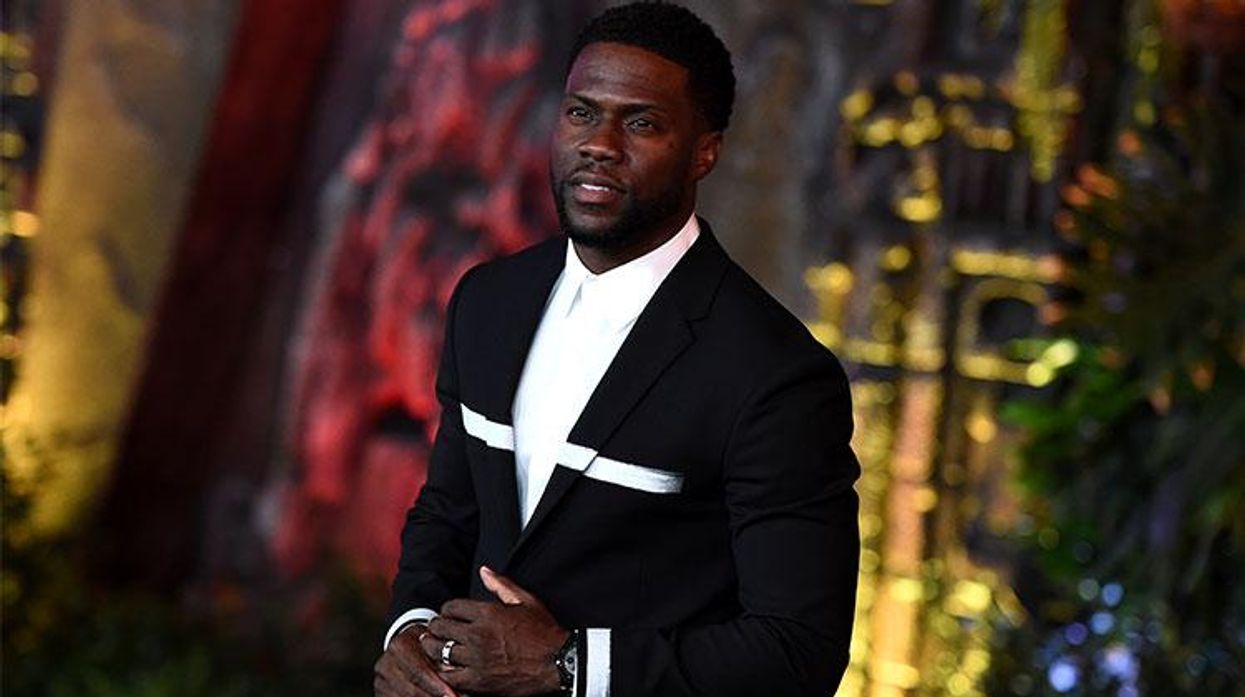People
Kevin Hart: Being Offended by Antigay Jokes Is a 'Choice'

The comedian put blame on the listener in an in-depth interview with NPR's Fresh Air on how comedy has changed in recent years.
January 13 2019 1:06 PM EST
dnlreynolds
By continuing to use our site, you agree to our Privacy Policy and Terms of Use.

The comedian put blame on the listener in an in-depth interview with NPR's Fresh Air on how comedy has changed in recent years.
Kevin Hart is once again discussing the backlash to his antigay jokes and tweets that cost him his position of host of the Academy Awards.
Although he vowed not to take up the issue again, The Upside actor talked to Terry Gross of NPR's Fresh Air Thursday about the controversy -- and the NPR host zeroed in on jokes about his extreme reaction to suspecting his son might be gay.
"Yo if my son comes home & try's 2 play with my daughters doll house I'm going 2 break it over his head & say n my voice 'stop that's gay,'" Hart stated in one such tweet from 2011.
In the interview, Gross referenced this tweet and remarks from Hart's 2010 comedy special Seriously Funny, paraphrasing, "As a heterosexual male, if I can prevent my son from being gay, I will. Every kid has a gay moment, but you have to stop it right there."
"This sounds like when you had a son, you were afraid that your son was going to be gay," Gross interpreted. "So what did gay mean to you then? What is it you were afraid of?"
"I think that's taking a joking and putting a context that you're determining it should be on it," Hart responded. "The joke was made with light intentions. It's not that deep-rooted, but because of the time of today, people look at it, and they dissect it."
"And then I say, but as a heterosexual male, if I can prevent my son from being gay, I would. It's a joke," Hart continued. "It's called a segue. The segue was to get into the joke about something that really happened at a party where my son was playing, and there was another boy playing with him. And I was like, hey, all right, that's enough of that."
"But because times today are so sensitive, we forget the jokes are made with the intensive purpose of making people laugh, not to hurt. That's not the purpose behind the joke," he said.
Hart said it was never the intent of his comedy to be offensive -- and if the listener took offense, then that is "a choice" made by the listener. "To me, when I did it, I thought that it would be funny. So if people choose to take offense to something, then that's a choice," he said.
The comedian went on to discuss how there is a fine line between edgy and offensive in comedy. And pressuring comedians -- who are "flawed but funny people" -- not to be offensive will have its consequences on the form of entertainment:
"It's like, what state of the world do you want comedy to go to?" Hart questioned. "Because ultimately, if we keep pushing in this direction, you're gonna have comics that don't know what's safe to talk about, and now the conversation has changed to people aren't funny anymore because everybody's afraid to be funny. So what level can they be funny? ... We're taking away the ability for people to be comfortable. Everybody. Workplace, work environments, from professional to any aspect of life, now. Everybody's walking on their toes. Everybody's walking on glass. Everybody is!"
Hart has apologized several times to the LGBTQ community for his past antigay tweets, including on Twitter and in a January episode of SiriusXM show. However, some have questioned the sincerity of his remarks. In an appearance on The Ellen DeGeneres Show, for example, Hart went on the defensive, saying that the resurfaced tweets were part of a "slander" campaign from trolls and that that he didn't have a "homophobic bone" in his body. He had referred to the Twitter backlash to his past antigay tweets as "craziness."
CNN's Don Lemon was one of Hart's prominent critics, who pointed out the deleterious impact of his "jokes" on LGBTQ youth of color. "We need to speak up for the young black kids in the LGBTQ community," Lemon stated on CNN. "I'm saying these issues need to be addressed. Because [LGBTQ youth] need to know that they have value and it's OK to be who they are. We have to stop low-key co-signing homophobia. It's not cool. We won't tolerate jokes that do otherwise."
"My apology was sincere when it was given, and I made it sincere when I gave it again, and my effort after that, when I gave another one, was just as sincere," Hart told Gross. "But it just seemed as if it was a never-ending cycle. So I chose to just shut it down and say that I'm done with it, and move on from it."
Listen to Hart's interview on Fresh Air below.
Charlie Kirk DID say stoning gay people was the 'perfect law' — and these other heinous quotes